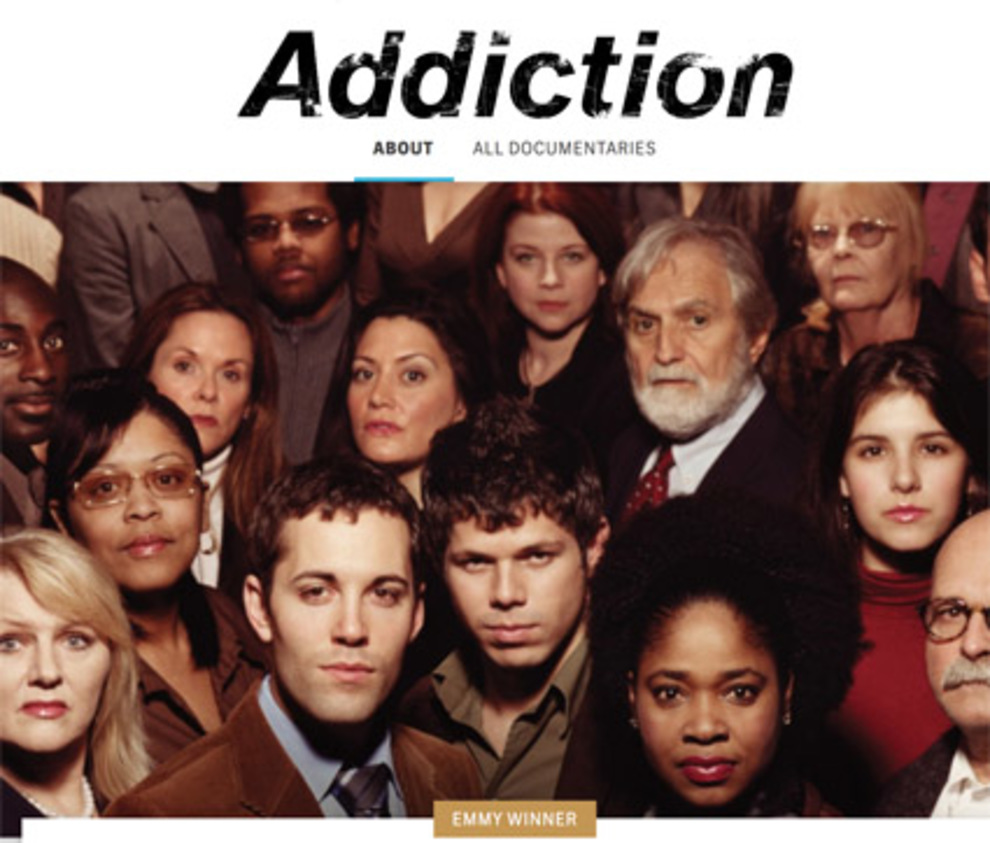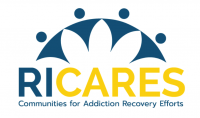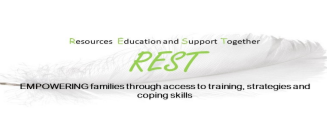I Can’t Tell If He Is Using or Not

An Allies member is practicing CRAFT with her Loved One and is trying to be as respectful and positive as she can. With her son living far away from her, she finds it difficult to tell whether he has been using or not when they do get to talk. She writes in for guidance on long-distance support.
with Louise Stillman, MSc, Editor
This question originally appeared on the Allies in Recovery Member Discussion Blog, where experts respond to members’ real-life questions and concerns.
I am so grateful to have found Allies in Recovery, and I am finding your website extremely helpful. My adult son has been struggling with opioid dependency for several years and has been in a variety of treatment programs. He recently tried Vivitrol injections for 3 months and then stopped them and relapsed. He began a methadone program about 3 weeks ago. He is self-employed but not able to fully support himself at this time. What he brings home basically pays for his food and gasoline. He is living in my home, rent and utilities free, as he tries to move forward with his recovery; I am paying his clinic fees (grateful to be able to do so).
I am attending online SMART Friends and Family meetings, working through the video and exercise modules on the Allies in Recovery site, reading recommended literature, and trying to practice communication skills recommended by this website and by SMART. I want my support to be appropriate and respectful of his recovery journey. The problem I have is that I live three hours away. It is hard for me to tell if he is continuing (albeit in a modified form) to use. (I think he can still use even on this methadone program.) I’m not sure how to apply rewards/withdraw rewards or even if I can from a distance. Do you have advice for long-distance support? Thank you for all you do for us.
Long-distance relationships and CRAFT
Kudos to you for all the work you are putting in to learn about CRAFT and how to apply it to your situation. Your son has been on a path of attempting various recovery options: multiple treatment programs, the Vivitrol shot and now methadone. He has been successful for a time, proof that he is learning what will work for him. Like many other families, you wonder how to apply CRAFT effectively when he is not living close by.
Understanding that your role is to be supportive and to free yourself from trying to control his recovery, puts you a lot farther along in the journey than I was when I found CRAFT! Considering the distance between you, you ask how you can reinforce positive behavior through rewards, remove rewards in a timely manner, and confidently identify times of use. You know that you are so not alone in these questions.
There are advantages and pitfalls to both situations:
- Having a loved one living close or with you: When living close by, you have a lot more opportunity to implement CRAFT but you also have to be on your game almost constantly and that can be exhausting.
- Having a loved one living a distance away with less interaction: Being far from your loved one limits the amount of interactions, thus the opportunities to practice CRAFT. On the positive side, you have the time to create a plan, practice and anticipate your loved one’s responses.
Distance also affords you time to get creative and combine multiple skills learned through the website. I suggest you take advantage of your situation to dig deep into our Allies in Recovery family training Module 4, Module 5 and Module 6.
Module 4: “How do I talk to my loved one?” Module 5: “My loved one isn’t using right now, now what?” Module 6: “My loved one IS using right now, now what?”)
The many rewards of mastering positive communication
The foundation of CRAFT implies that, if we expect to strike change in our loved ones, we need to stay connected and to work to improve our relationship (all the while taking care of our sanity). One of the most powerful tools we have to accomplish this is communication. Mastering positive communication skills gives you access to a whole new and easy way of rewarding your loved one’s non-use. It is also extremely powerful as it allows you to calm down and to take a step back. By shifting your mindset, you allow yourself to find peace and you create space for yourself and your own recovery.
Your son has recently started a methadone program and is putting effort into his recovery. When dealing with my loved one — both when he was actively using and in recovery, especially early recovery — it was crucial for me to learn to identify his positive behavior, no matter how small. Any behavior that I wanted him to repeat deserved rewarding and I had to go digging to find it.
Methadone is the heavy-hitter in medications for opioid addiction. Unlike buprenorphine or naltrexone, methadone is given daily to the patient by clinic staff. Patients can earn the right to have their medication to take home for a few days at a time, but otherwise, it is a daily trip to the clinic.
At three months, the clinic and your son have probably arrived at a dose that eliminates his cravings for opioids. Clinics expect some use with patients until the dose is adjusted correctly. This can take a few months. The dose is set so a) there are no opioid withdrawals b) he won’t feel the need to get high.
Methadone is an active opioid. It takes the place of the illicit opioid in the body. So there is the danger that you can beat the methadone, by using so much of your illicit opioid it overpowers the methadone, but the right dose that prevents withdrawals and wipes away cravings prevents people from trying.
Can your son provide you some accountability? You are giving him so much aid, your home, utilities. Can your son give the clinic permission to talk to you? Or at least to tell you whether he is attending regularly?
For the family, having a loved one on methadone should be comforting. Control is tight in methadone clinics, testing is frequent. Your son continues to attend. Excellent news. If you think he is wavering, perhaps you say something like this:
“I understand how difficult it must be and I see how much effort you’re putting in to staying with your program. If there is anything I can do to help, please let me know.”
And/or,
“I am really impressed with how focused and consistent you are with this program. I know it is not easy. I am here to support you and maybe we could plan a visit.”
Here is your new magic toolbox for communication
Your new communication patterns will look like this (simple but not easy):
- Using “I” where you might have used “you” in the past,
- Voicing understanding statements,
- Offering to help, and
- Rewarding through validation of their efforts and recognition of their struggles.
Rewarding our loved one may seem simple when we first look at but it can be somewhat confusing and difficult to execute. It is important to distinguish reinforcement vs bribes and incentives vs bribes.
It took me a while to grasp the fact that bribes or incentives are not effective ways of reinforcing positive behavior. Bribing, in particular, almost always never works. Often times it makes situations worse. Incentives might work once or twice, but can fall apart quickly.
A BRIBE IS A REWARD GIVEN BEFORE, WITH THE PROMISE OF A PARTICULAR BEHAVIOR. When the reward is given ahead of the desired behavior, we are actually reinforcing the negative behavior that took place beforehand.
AN INCENTIVE IS SOMETHING THAT IS PROMISED BEFORE AN EXPECTED BEHAVIOR BUT GIVEN AFTER IT OCCURS. This is also problematic because it inevitably results in your loved one feeling controlled and manipulated. Behavior change becomes contingent upon the reward and therefore, it is unsustainable.
So, what does reinforcing positive behavior look like?
REINFORCING POSITIVE BEHAVIOR IS WHEN THE REWARD IS GIVEN AFTER THE BEHAVIOR IS OBSERVED.
Reinforcing positive behavior is waiting until our love one behaves in a particular way and then rewarding them for it. This allows our loved one the opportunity to experience a sense of agency or control over actions and their consequences, which is very empowering.
You indicate in your post that you suspect your loved one may be using. You might consider consulting a professional about Methadone and come to some understanding of the side effects he would be experiencing when using. Allies in Recovery Module 3 (“What’s Going on When My Loved One Uses?”) on our Member Site can also provide guidance for when you are trying to narrow down and define when your loved one is using. Ask yourself questions like “is my loved one using or is it the side effects of methadone?” and “are there multiple indications that he is using?”.
During my son’s early recovery, I would often get out a sheet of paper and make a T. On the left side I would write out all the facts that I knew to be true and, on the right, the information that I was unclear about. This usually helped me determine whether there was use or not.
Removing rewards is not a punishment
I learned, (after watching the videos in Module 6 countless times), that the technique of removing rewards could be used for times when my loved one was also exhibiting “addictive behaviors” (for example, arguing or trying to engage me in a conflict). Remember, removing rewards should be done quickly, in the moment. It is NOT a punishment.
It may sound something like this:
“I love our calls when we are civil to each other, maybe we try again tomorrow or in a couple of days. Talk to you later.”
Letting my loved one know that I am open to talking (rewarding what is positive) but also removing the reward (a conversation with me) is a way to combine the principles of Allies in Recovery Training Modules 4, 5 and 6.
You’ll learn to anticipate your loved one’s responses
I also found that I had to anticipate my loved one’s negative response to my leaving the conversation. He would probably ramp things up a bit because I was changing things on him, and we all know that human beings are uncomfortable with change! The more prepared I was for his response, the more confidence I had in ending the discussion. I became better at sending the message that I believed he was capable of calming down (sitting and dealing with his own difficult feelings) and holding a conversation rather than an argument. This was all just another chance for me to set down a healthy boundary and empower my loved one to take hold of his own recovery.
I hope that this helps to inspire you on how you might use CRAFT even though your son is not living close by right now. I have used it with my son, both when he was a distance away and when he finally came home to live with us. For us it has been a saving grace, giving us the tools to deal with this awful illness.
You are not alone; we are here for you. Thank you so much for writing in and please keep us updated on your progress.
Allies in Recovery provides support and guidance on how to identify and cope with the flood of emotions you are feeling. The CRAFT method teaches you the strategies and skills to engage your loved one on a path to recovery. At Allies we provide you with information critical to understanding your loved one’s alcohol/drug addiction, and train you in the important role you can play in guiding them to recovery.
A membership at Allies in Recovery.net brings you into contact with experts in CRAFT and the field of recovery and treatment for substance use. Our unique, award-winning learning platform introduces you to CRAFT and guides you through the latest in evidence-based techniques for unblocking the situation. Together we will move your loved one towards recovery.











